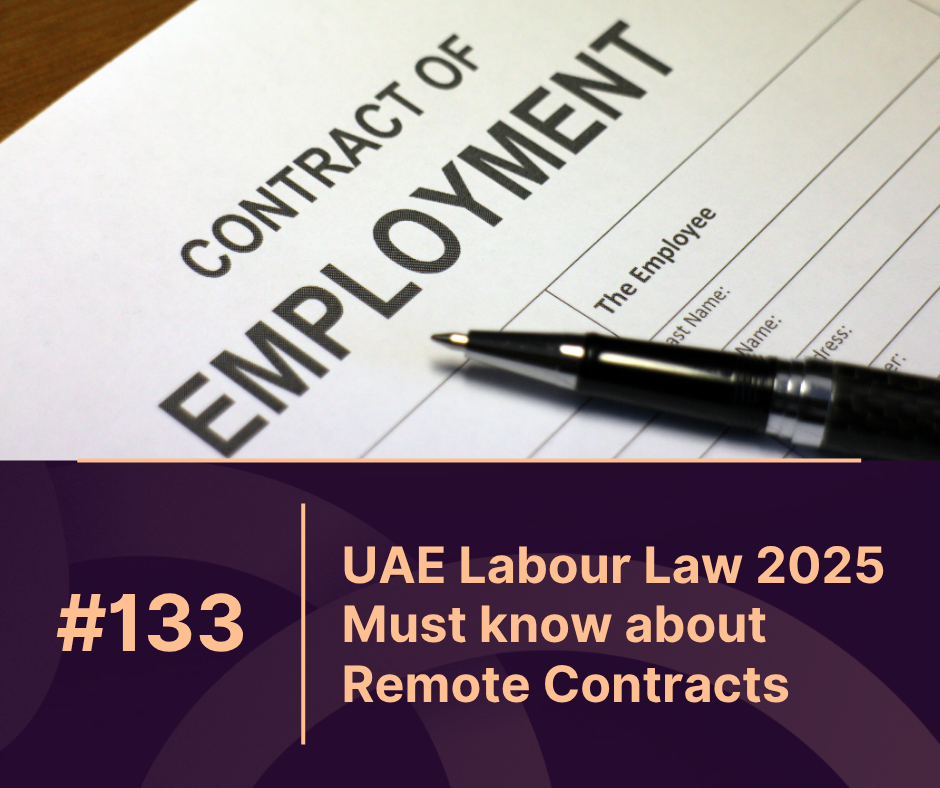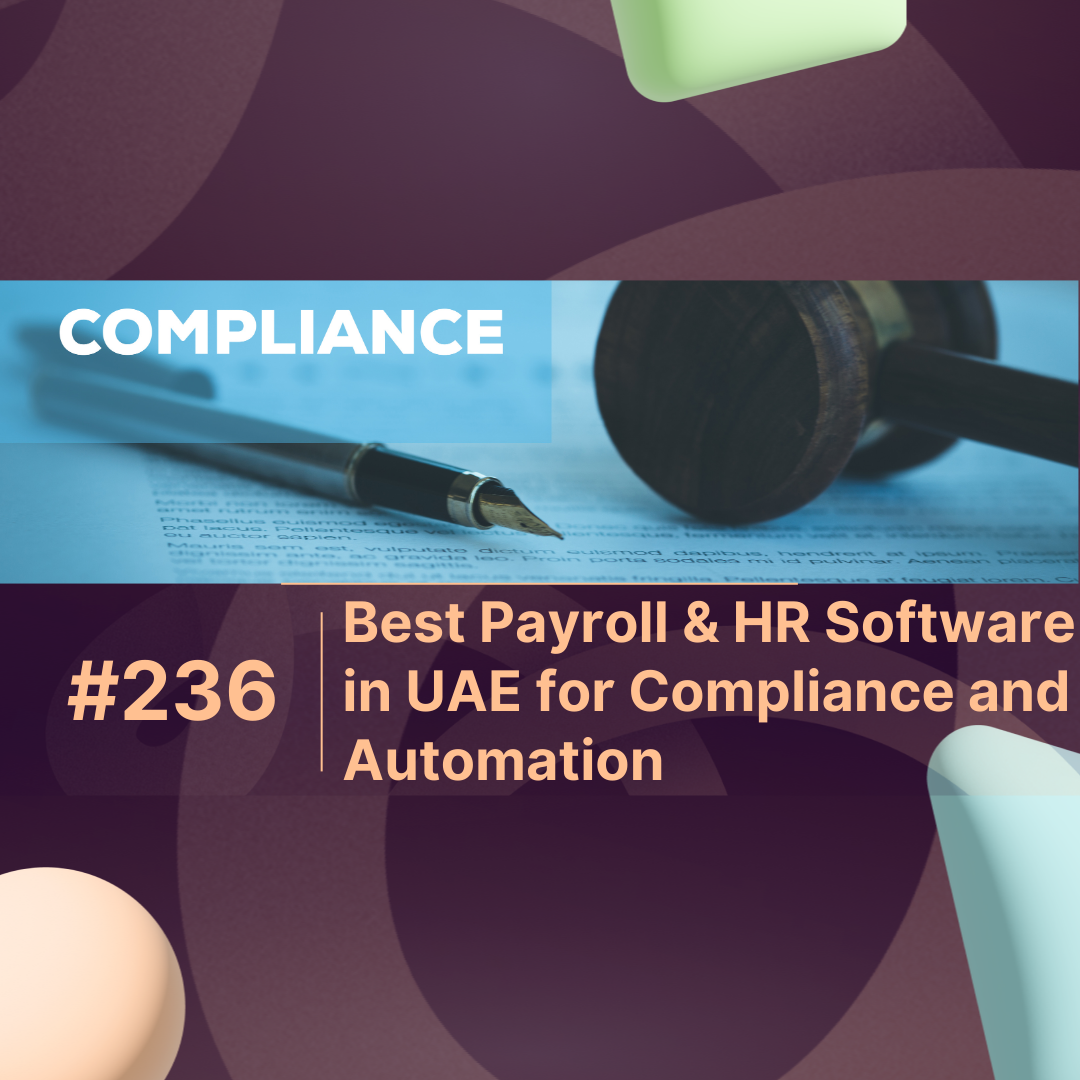Are remote work contracts fully compliant under UAE Labour Law in 2026? Yes but only if HR aligns with updated regulations and documentation standards.
Overview
The UAE Labour Law continues to evolve in response to hybrid work models, digital transformation, and global employment practices. In 2026, remote contracts are no longer temporary arrangements—they are formally structured under federal labor regulations.
For HR professionals, understanding how UAE Labour Law applies to remote employees is critical to avoid penalties, ensure compliance, and protect organizational interests.
This blog explains what HR must know about remote contracts under UAE Labour Law 2026, including compliance requirements, contract structures, employee rights, and digital HR best practices.
UAE Labour Law 2026: Understanding Remote Work Contracts
What Does UAE Labour Law Say About Remote Contracts?
Direct Answer: UAE Labour Law recognizes remote and flexible work models, provided employment contracts clearly define work location, responsibilities, compensation, and compliance obligations.
The UAE has modernized labor regulations to accommodate:
-
Hybrid work
-
Fully remote roles
-
Flexible work schedules
-
Temporary remote arrangements
However, HR must ensure remote contracts meet legal documentation and Ministry of Human Resources and Emiratisation (MOHRE) standards.
Key Legal Requirements for Remote Contracts in 2026
Under the updated UAE Labour Law framework, remote contracts must include:
-
Clear job description and deliverables
-
Work location (remote, hybrid, or flexible)
-
Compensation structure and benefits
-
Working hours and overtime terms
-
Data protection and confidentiality clauses
-
Termination terms aligned with federal law
Failure to properly structure remote contracts can result in fines, disputes, or contract invalidation.
Remote Work vs On-Site Contracts: Legal Comparison
| Criteria | On-Site Contract | Remote Contract (2026) |
|---|---|---|
| Work Location Defined | Office address | Remote/home/variable |
| Working Hours Monitoring | Physical attendance | Digital tracking tools |
| Equipment Responsibility | Employer-provided | Defined by contract |
| Data Security Clause | Standard clause | Enhanced cybersecurity clause |
| MOHRE Registration Required | Yes | Yes |
| Overtime Compliance | Regulated | Regulated |
Both contract types must comply with UAE Labour Law, but remote contracts require additional clarity regarding digital monitoring and workplace safety.
1. Working Hours & Overtime Compliance
Direct Answer: Remote employees are still entitled to regulated working hours and overtime compensation under UAE Labour Law.
Standard guidelines in 2026 include:
-
8 working hours per day (48 hours per week)
-
Overtime compensation as per federal rules
-
Mandatory rest periods
-
Paid leave entitlements
HR teams must implement digital attendance systems to track working hours accurately.
Platforms like MaxHR help organizations automate attendance management, track remote work hours, and generate compliance-ready reports.
2. Data Protection & Cybersecurity Obligations
Remote contracts must now include strong data protection clauses.
HR must ensure:
-
Confidentiality agreements are clearly stated
-
Employees follow company cybersecurity protocols
-
Company devices or secure access systems are defined
With increasing digital work environments, cybersecurity compliance is a major legal requirement.
3. Health & Safety Responsibilities for Remote Employees
Many HR professionals ask:
Does UAE Labour Law require employers to ensure safety in remote work environments?
Yes. Employers must provide reasonable guidance and ensure that remote work conditions do not endanger employee health.
This includes:
-
Ergonomic recommendations
-
Safe equipment standards
-
Defined emergency procedures
While employers are not required to inspect private homes, remote policies must include safety guidelines.
4. Termination & Notice Period Rules
Remote employees have the same rights as on-site employees.
Under UAE Labour Law 2026:
-
Notice periods must be clearly defined
-
End-of-service benefits apply
-
Probation rules remain consistent
-
Unlawful termination penalties apply
HR must avoid assuming remote contracts reduce legal obligations—they do not.
UAE Labour Law 2026 Compliance Data
| Compliance Indicator | 2024 | 2026 Projection |
|---|---|---|
| Companies Using Remote Contracts | 45% | 70% |
| Digital Attendance Monitoring Adoption | 50% | 80% |
| Remote Work Dispute Cases | 12% | 8% (Expected Reduction with Better Contracts) |
| HR Software Adoption | 60% | 85% |
The increase in digital HR system adoption shows how companies are proactively strengthening compliance.
How HR Can Ensure Compliance with UAE Labour Law
To stay compliant in 2026, HR departments should:
-
Review all employment contracts annually
-
Clearly define remote work terms
-
Register contracts through official channels
-
Implement digital workforce monitoring tools
-
Maintain documented employee acknowledgments
Using an integrated HR platform like MaxHR simplifies contract management, policy updates, payroll compliance, and document tracking—especially in hybrid environments.
Common Mistakes HR Must Avoid
-
Using informal remote agreements without MOHRE registration
-
Failing to document working hours
-
Ignoring overtime compliance
-
Not updating cybersecurity clauses
-
Overlooking end-of-service benefit calculations
These mistakes can lead to financial penalties or legal disputes.
Why Remote Contracts Matter More in 2026
The UAE’s push toward digital economy growth means remote work is now a long-term workforce strategy—not a temporary trend.
The UAE Labour Law framework ensures:
-
Worker protection
-
Employer clarity
-
Legal transparency
-
Balanced flexibility
Organizations that proactively align with these regulations gain a competitive advantage and avoid compliance risks.
Conclusion
UAE Labour Law 2026 clearly recognizes remote and hybrid employment models but compliance remains non-negotiable.
HR professionals must ensure remote contracts:
-
Meet MOHRE requirements
-
Define working hours clearly
-
Include cybersecurity clauses
-
Align with termination regulations
-
Protect employee rights
With the help of digital HR solutions like MaxHR, companies can automate compliance tracking, manage remote contracts efficiently, and confidently navigate evolving labor regulations.
The future of work in the UAE is flexible but legally structured.
FAQs About UAE Labour Law & Remote Contracts
1. Does UAE Labour Law allow fully remote employment contracts?
Yes. UAE Labour Law permits remote contracts, provided they meet documentation, registration, and compliance standards.
2. Are remote employees entitled to overtime pay?
Yes. Remote employees have the same overtime rights as on-site workers under UAE Labour Law.
3. Do remote contracts need to be registered with MOHRE?
Yes. All employment contracts, including remote agreements, must be officially registered.
4. Can employers monitor remote employee working hours?
Yes. Employers can use digital attendance tools, provided monitoring policies are clearly communicated and legally compliant.
5. Are end-of-service benefits applicable to remote employees?
Yes. Remote workers are entitled to end-of-service benefits under UAE Labour Law, just like on-site employees.



